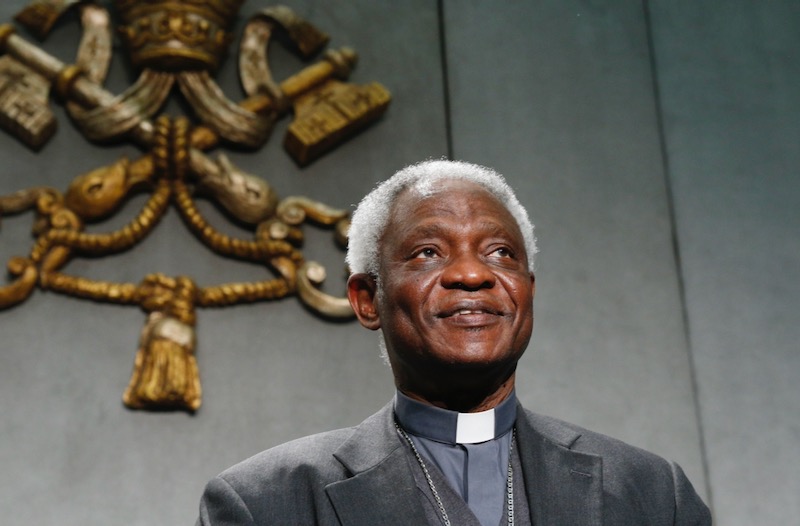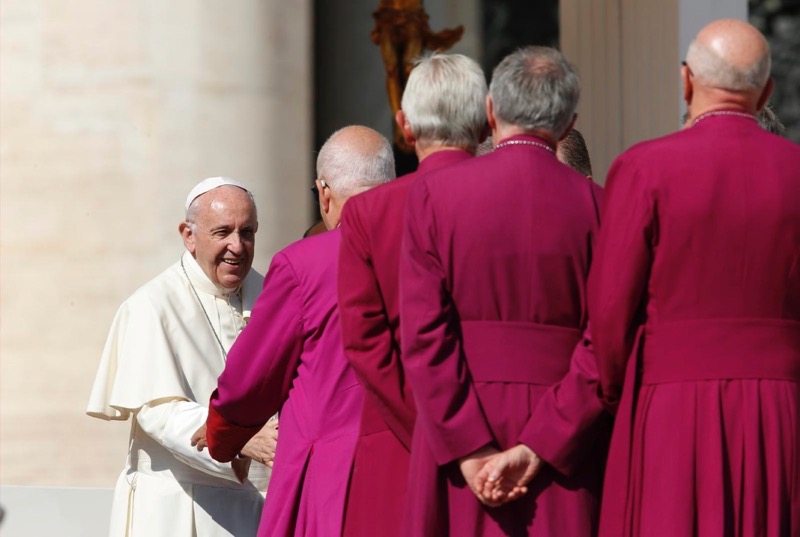A coalition of Catholic and Anglican theologians, lay and ordained, have publicly called on the Vatican to scrap an 1896 papal document declaring Anglican ordinations “absolutely null and utterly void”. The document in dispute, “Apostolicae Curae”, necessitates that Anglican orders be presumed invalid when ministers leave the Church of England for Catholicism. In one high-profile recent example, the former Anglican Bishop of Rochester, Michael Nazir-Ali, was ordained priest in a ceremony shortly following his conversion to Catholicism.
In a new statement, however, the Malines Conversations Group, a collection of Catholic and Anglican theologians dedicated to resolving ecumenical problems, argue that Apostolicae Curae’s dismissal of the Church of England’s religious orders as “absolutely null and utterly void” has been outdated. Sorores In Spe, launched at an ecumenical seminar in the Pontifical University of Saint Thomas Aquinas, commonly known as the Angelicum, on Wednesday 15 December. “Where we once walked apart, we now walk together in friendship and love,” the document concludes, after reviewing examples of collaboration and gestures of recognition between Anglican and Catholic authorities over the century and a quarter since Apostolicae Curae.
The Group, supported by Catholic theologians like Gemma Simmonds C.J and Anglican thinkers like the Rev. Sarah Coakley, place special emphasis upon changes within the Catholicism since Vatican II. “When an understanding of the diaconate,” the theologians argue in one example, “which is deeply rooted in the ministry of Jesus Christ and expressed in remarkably similar ordination rites, is shared by both our traditions, it seems untenable that there should be no mutual recognition of ministry at this point.” Anglicans and Catholics collaborate together from the highest levels of the Church to the lowest, they added, but “a dissonance between theory and practice” persists.
The comprehensive rejection of Anglican orders arrived at by Pope Leo XII was based on “liturgy, theological method, historical understanding, church-political considerations and ecumenical approaches which were of their time,” argue the group; not those of the present.
Such arguments clash with recent Vatican statements on the status of Apostolicae Curae, however. In 1998 an official statement of the Congregation for the Doctrine of the Faith listed the document’s judgement on Anglican orders as “truths connected to revelation by historical necessity and which are to be held definitively” by Catholics assuming offices in or representative of the Church. Interviewed by Catholic News Service, Bishop Brian Farrell, secretary of the Pontifical Council for Promoting Christian Unity, said that his Vatican office does not sponsor the group’s dialogue. Nevertheless, he added that “we are very happy,” to see these questions “being examined in the different ecumenical context of today, when so much has been achieved in Anglican-Catholic relations.”



 Loading ...
Loading ...